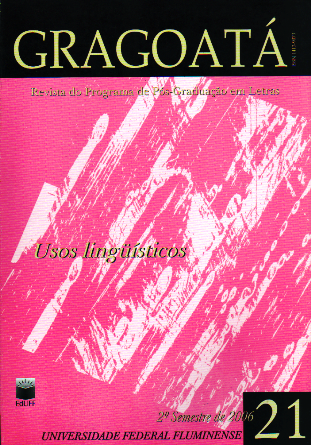Lexical and grammatical conjunctions: the case of "por causa de"
Keywords:
grammaticalisation, conjunctions, causal relationsAbstract
In this article we analyze the emergence of the lexical conjunction por causa (de) que (by cause of that) in spoken Brazilian Portuguese, focusing tokens collected from 64 hours of tape-recorded interviews with speakers born in Rio de Janeiro in the early eighties. First we compare clauses headed by porque (because) and clauses which present the PP por causa de (by cause of) and show that both segments are similar with regard to four variables: position, transitivity and tense of the verbal predicate and informational status. Then we consider the clauses headed by por causa de que (by cause of that) and show that they share the same properties with the clauses headed by porque: they tend to introduce new information, exhibit state verbs in the present tense and follow the main clause. The difference between them concerns the fact that the latter combines clauses only at the representational level whereas the former combines clauses not only at this level but at the epistemic and speech act levels as well.Downloads
Downloads
Published
How to Cite
Issue
Section
License
Authors who publish in Gragoatá agree to the following terms:
The authors retain the rights and give the journal the right to the first publication, simultaneously subject to a Creative Commons license CC-BY-NC 4.0, which allows sharing by third parties with due mention to the author and the first publication by Gragoatá.
Authors may enter into additional and separate contractual arrangements for the non-exclusive distribution of the published version of the work (for example, posting it in an institutional repository or publishing it in a book), with recognition of its initial publication in Gragoatá.

Gragoatá is licensed under a Creative Commons - Attribution-NonCommercial 4.0 International.














